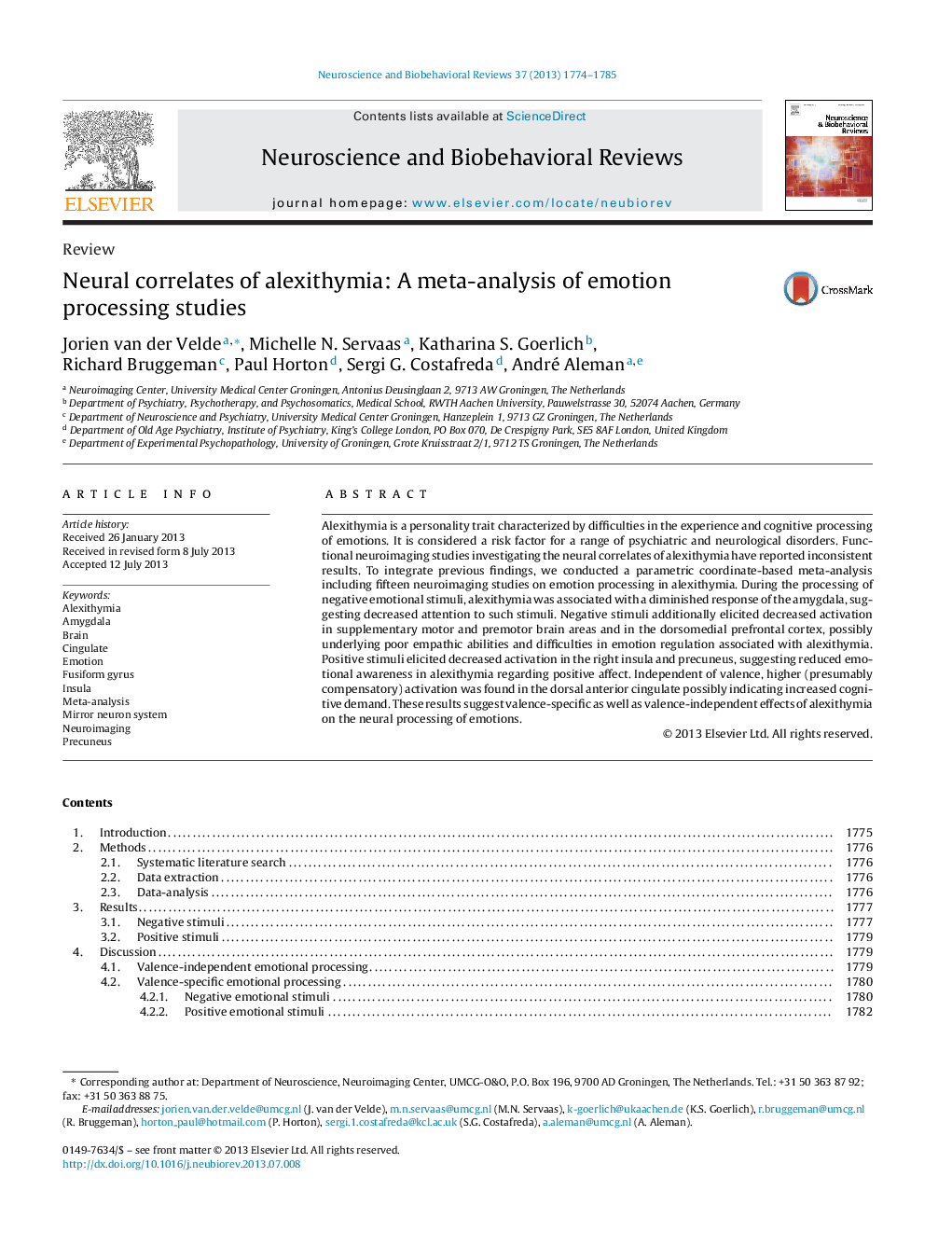| Article ID | Journal | Published Year | Pages | File Type |
|---|---|---|---|---|
| 10461771 | Neuroscience & Biobehavioral Reviews | 2013 | 12 Pages |
Abstract
Alexithymia is a personality trait characterized by difficulties in the experience and cognitive processing of emotions. It is considered a risk factor for a range of psychiatric and neurological disorders. Functional neuroimaging studies investigating the neural correlates of alexithymia have reported inconsistent results. To integrate previous findings, we conducted a parametric coordinate-based meta-analysis including fifteen neuroimaging studies on emotion processing in alexithymia. During the processing of negative emotional stimuli, alexithymia was associated with a diminished response of the amygdala, suggesting decreased attention to such stimuli. Negative stimuli additionally elicited decreased activation in supplementary motor and premotor brain areas and in the dorsomedial prefrontal cortex, possibly underlying poor empathic abilities and difficulties in emotion regulation associated with alexithymia. Positive stimuli elicited decreased activation in the right insula and precuneus, suggesting reduced emotional awareness in alexithymia regarding positive affect. Independent of valence, higher (presumably compensatory) activation was found in the dorsal anterior cingulate possibly indicating increased cognitive demand. These results suggest valence-specific as well as valence-independent effects of alexithymia on the neural processing of emotions.
Keywords
Related Topics
Life Sciences
Neuroscience
Behavioral Neuroscience
Authors
Jorien van der Velde, Michelle N. Servaas, Katharina S. Goerlich, Richard Bruggeman, Paul Horton, Sergi G. Costafreda, André Aleman,
